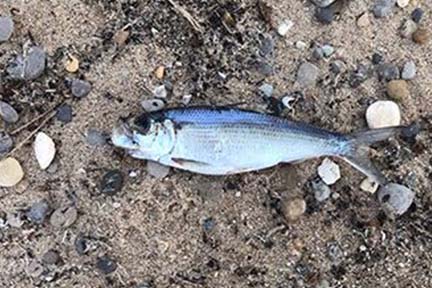
FCC’s One-to-One Consent Rule to Combat Illegal Robocalls
|
|
|

|
|
|

 |
||||
DNR News |
||||
|

|
|

|
|
|
|

 |
Friday 03/14-Monday 03/17/25 WEEKEND WORK for MDOT (I, M, US roads)
This is weekend construction, in addition to on-going projects other than these locations. Always check Michigan.gov/drive for this info and for ALL projects and follow @MDOT_MetroDet.
WEATHER AFFECTS ALL WORK AND MAY CAUSE DELAYS OR CANCELLATIONS.
I-75:
Oakland – NB I-75, M-15/Ortonville to Saginaw/Dixie Hwy, 1 LANE OPEN, Fri 9pm-Mon 5am, for pavement marking removal/replacements and intermittent ramp closures:
Oakland – Crossroads closed at I-75 intermittently, Fri 9pm-Mon 5am.
Oakland – SB I-75 RAMP CLOSED to EB I-696, Sat 7am-3pm, for pavement markings.
I-94:
Wayne – EB I-94, Middlebelt to Ecorse, 2 LANES OPEN, daily 9a-3p thru 5/4, median utility work.
Wayne – EB I-94, Middlebelt to Inkster, 2 LANES OPEN, left closed, Sun 5am-2pm, cable crossing.
Wayne – WB I-94 CLOSED intermittently, US-24/Telegraph to Middlebelt, Sun 6am-10am, cable crossing.
I-96:
Wayne – EB I-96 ramp to EB/WB I-94, 1 ramp lane open, Mon 9am-Tue 5pm, drainage work.
I-696:
Oakland – WB I-696, Ryan to Couzens, 2 LANES OPEN, Fri 9am-noon-ish, rumble strips.
Oakland – WB I-696, Orchard Lake to I-275, 2 LANES OPEN, Fri 9am-noon-ish, for rumble strips.
Oakland – EB I-696, I-275 to Orchard Lake, 2 LANES OPEN, Fri noon-ish-3pm, for rumble strips.
M-3: (Gratiot)
Macomb – NB/SB M-3, Masonic Blvd to Quinn Rd, 3 lanes open, Sat 9am-Wed 3pm, for utility work.
Wayne – NB M-3, M-59/Hall to Cass Ave, 1 LANE OPEN, Fri 9am-3pm, manhole work.
M-10: (Lodge)
Wayne – SB M-10 RAMP CLOSED to Larned, Mon 6am-late May, for bridge work
M-85: (Fort Street)
Wayne – EB/WB M-85 at Livernois Ave, 1 LANE OPEN, Mon-late April 9am-3pm, utility/lighting work.
M-102: (8 Mile)
Wayne- EB 8 Mile Rd, M-3/Gratiot to Brock St, 3 lanes open, Fri 9am-3pm, utility work.
Wayne – WB 8 Mile Rd near Lahser, 3 lanes open, Fri 9am-3pm, utility work.
Telegraph:
Oakland – NB Telegraph Rd Lincoln Dr to Maple Rd, 2 LANES OPEN, Sat 9am-3pm, sewer maintenance.
US-12: (Michigan)
Wayne – WB US-12, Beech Daly to Middlebelt, 1 LANE OPEN, Mon 9am-Sat 4/5 5pm, watermain.
US-24: (Telegraph)
Wayne – SB US-24, Joy Rd to Warren Rd, 2 LANES OPEN, Fri-Thu daily 7am-5pm, utility work.
Corktown Races and St Patrick’s Parade –
Sun 9:30am-5pm CLOSED:
Sun 6am-9:30am for race prep:
EB/WB US-12/Michigan Ave, 14th St to 17th St, 1 LANE OPEN for race prep.
REMINDERS:
EB 696 CLOSED M-10 to I-75
EB M14/96, Sheldon-Newburgh, 1 LANE OPEN
NB 275 ramp CLOSED to WB M-14